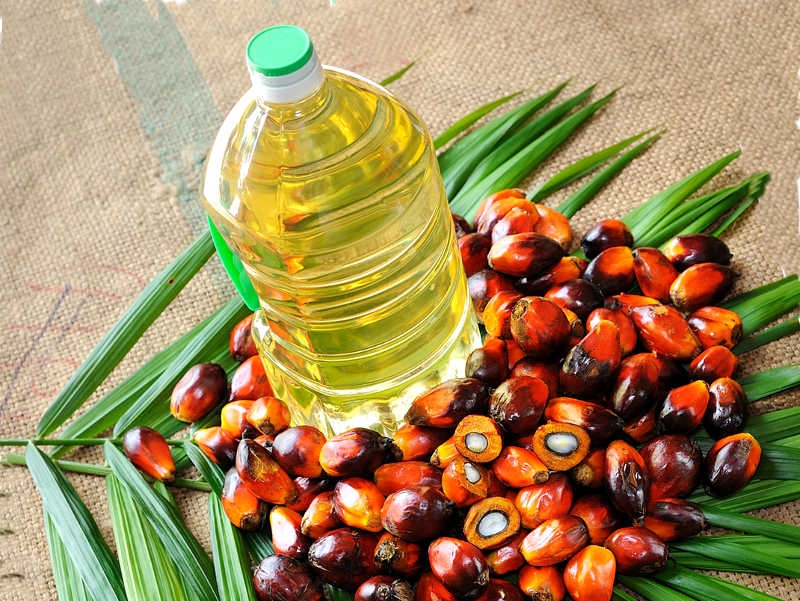Pakistan: Rising prices, reduced availability of Indonesia palm oil pose severe risks to food security, industries

The Pakistan Vanaspati Manufacturers Association (PVMA) on Tuesday said that the rising prices and reduced availability of palm oil from Indonesia pose severe risks to Pakistan’s food security and local industries.
The PVMA delegation, led by its chairman Sheikh Umer Rehan, held a meeting with Federal Minister for Commerce Jam Kamal Khan, highlighting critical challenges facing the edible oil industry and proposing measures to enhance its sustainability and global competitiveness.
During the meeting, Sheikh Umer Rehan underscored the urgent need for a comprehensive edible oil policy to address Pakistan’s heavy reliance on imports, which currently account for 90% of the country’s edible oil consumption. “A robust policy is essential to boost local production and shield the economy from global market disruptions,” he emphasized. Rehan expressed concern over Indonesia’s new legislation mandating that 40% of palm oil be diverted to biodiesel production. He explained that this policy has disrupted global supplies, causing price hikes that significantly impact Pakistan, the third-largest importer of palm oil globally. “The rising prices and reduced availability of palm oil from Indonesia pose severe risks to Pakistan’s food security and local industries,” he warned.
The chairman called on the government to leverage Pakistan’s status as a major importer to negotiate favorable terms with global suppliers. He also urged a reduction in import duties and taxes on edible oil sourced from Malaysia and Indonesia to stabilize prices for local consumers. The PVMA proposed expanding export opportunities for Pakistani edible oil products to markets in the Middle East and the United States through sea routes. Highlighting barriers in the existing Free Trade Agreements (FTA) and Preferential Trade Agreements (PTA) with Malaysia and Indonesia, Rehan called for a reduction of at least 50% in import duties on soybean and sunflower during Prime Minister Shehbaz Sharif’s upcoming visit to these countries. Minister Jam Kamal Khan encouraged the PVMA to submit a detailed proposal within two to three days to address these issues and enable negotiations during the PM’s visit. He assured the industry of the government’s full support in resolving challenges and promoting growth. He also asked the association to include proposals for devising an edible oil policy to reduce Pakistan’s dependency on palm oil imports from Malaysia and Indonesia.
Sheikh Umer Rehan also proposed a pilot project to produce edible oil from rice husks, a byproduct often wasted in Pakistan despite its extensive rice production. He cited neighboring countries successfully utilizing this method and urged Pakistan to adopt similar initiatives to reduce dependency on imports and improve self-reliance. Concluding the meeting, the PVMA chairman presented a shield to Minister Jam Kamal Khan as a gesture of gratitude. Both sides reaffirmed their commitment to strengthening the edible oil sector through policy reforms, innovative projects, and international cooperation. This engagement highlights the federal government’s recognition of the edible oil industry’s pivotal role in Pakistan’s economy and the importance of addressing its challenges for long-term sustainability. Meanwhile, Federal Minister for Commerce Jam Kamal Khan and Turkish Ambassador to Pakistan Irfan Neziroglu met to discuss avenues for enhancing trade and economic ties between the two countries. The meeting underscored the historical, cultural, and strategic ties between Pakistan and Turkiye while emphasizing the need to unlock the true trade potential of the relationship. The leadership of both nations envisions increasing trade and to enhance bilateral opportunities. He highlighted the operationalization of the “Trade in Goods Agreement” in May 2023, which granted tariff concessions on Pakistani and Turkish products. Ambassador Neziroglu proposed that Pakistan send a delegation, to Turkiye in January 2025 to discuss actionable plans ahead of a high-level state meeting scheduled in Islamabad. Minister Jam Kamal Khan emphasized the importance of creating a business-friendly environment to empower the private sector. “The era has changed; our focus must be on facilitating private sector to lead trade growth,” he remarked, adding that matchmaking initiatives for business-to-business (B2B) engagements would play a vital role in enhancing economic collaboration.
He also referenced his meeting with the Turkish counterpart Dr Omer Bolat, in Karachi, where he floated the idea of matchmaking among the business community. Both sides agreed to explore opportunities for joint ventures. The minister also mentioned the Joint Task Force on Textiles, initiated after discussions during the COMCEC Ministerial Meeting in 2023, as a mechanism to rationalize tariffs and strengthen the textile value chain. Ambassador Neziroglu and Minister Khan agreed on the importance of government-to-government (G2G) and business-to-business (B2B) engagements. Concluding the meeting, both sides expressed optimism about the future of Pak-Turkiye relations and committed to taking pragmatic steps to achieve their shared economic goals. The proposed delegation to Turkiye in January is expected to lay the groundwork for significant advancements in bilateral trade and investment.
For almost 30 years of expertise in the agri markets, UkrAgroConsult has accumulated an extensive database, which became the basis of the platform AgriSupp.
It is a multi-functional online platform with market intelligence for grains and oilseeds that enables to get access to daily operational information on the Black Sea & Danube markets, analytical reports, historical data.
You are welcome to get a 7-day free demo access!!!
Write to us
Our manager will contact you soon



